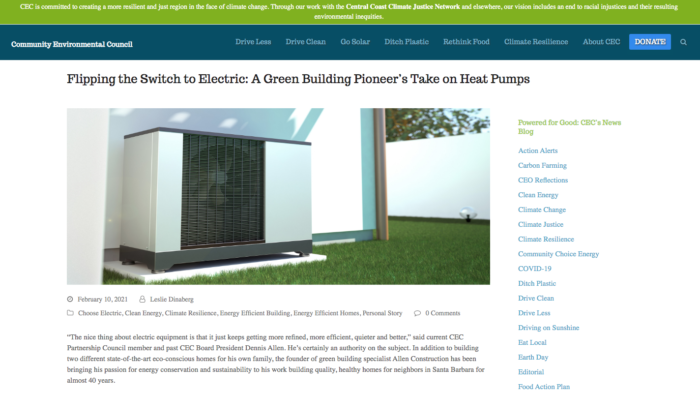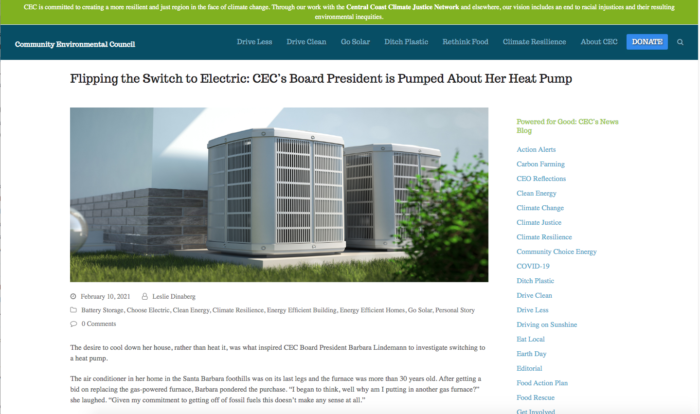“The nice thing about electric equipment is that it just keeps getting more refined, more efficient, quieter and better,” said current CEC Partnership Council member and past CEC Board President Dennis Allen. He’s certainly an authority on the subject. In addition to building two different state-of-the-art eco-conscious homes for his own family, the founder of green building specialist Allen Construction has been bringing his passion for energy conservation and sustainability to his work building quality, healthy homes for neighbors in Santa Barbara for almost 40 years.
As the costs of heat pumps have gone down, their efficiency has continued to improve. When he was building the LEED platinum certified Victoria Garden Mews project in downtown Santa Barbara in 2011 (where he and his wife Jenny currently reside), “we didn’t even consider a heat pump,” said Dennis. “At that point they were pretty expensive. Now they are much more reasonably priced and they’re much more efficient with what they call the coefficient of performance — it can be up to four times what a forced air gas/heating system would be. All of these things are just coming on big time.”
With all of the new residential projects in California now required to have solar power, Dennis predicts that the demand for heat pumps will continue to rise. “Heat pumps are safer and healthier because you’re not burning natural gas and having the combustion fumes from the gas system, which are usually in the house. (This is why you have to have carbon monoxide detectors in homes to sense whether there is too much carbon monoxide being put out by the natural gas burning appliances.) Those are both safety and health issues. And more recent research is finding that the health issues are more serious than we were all led to believe even five years ago.”
Higher upfront costs are the primary stumbling blocks when it comes to installing electric heating and cooling systems, but, Dennis explained, “if you take into account the operational side, then it has a payback period – and from then on you’re saving money. The upfront costs are still a little bit more expensive, but that’s coming down all the time and pretty soon it’s going to be a no brainer to go all-electric. The ordinances and the state regulations are nudging people in that direction, and there are some incentive programs and so forth that help people go there. Once they go there it keeps helping to drive the cost down and it helps people save money and be healthier. So even with the slightly higher costs today it’s still worth doing.”
This story was originally published on cecsb.org on February 10, 2021.


